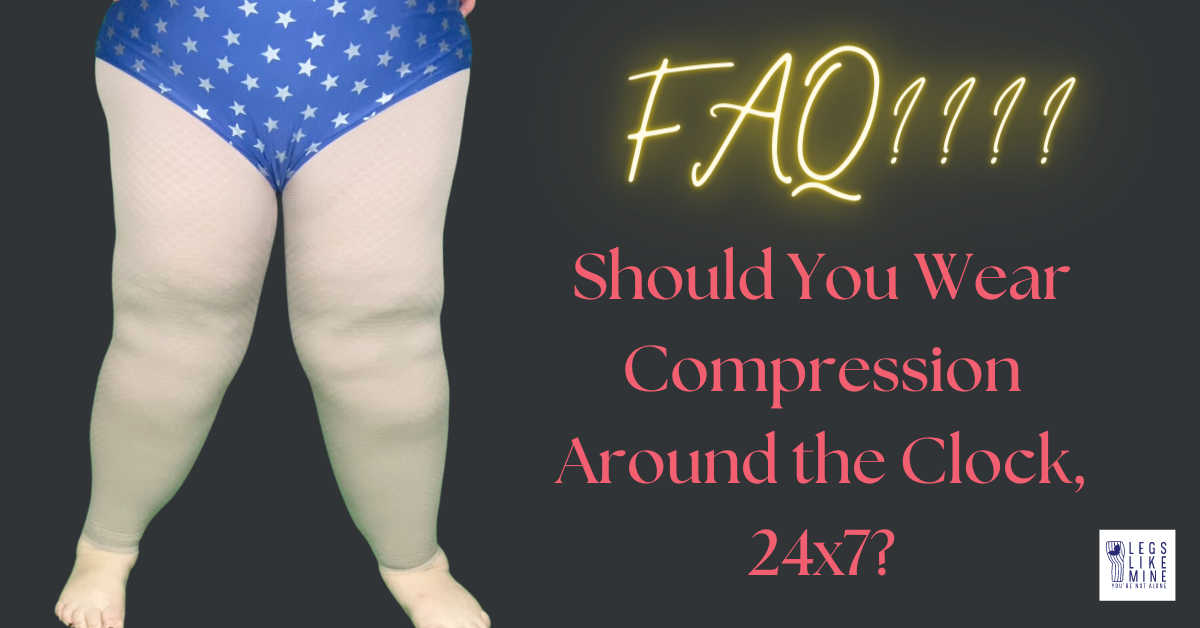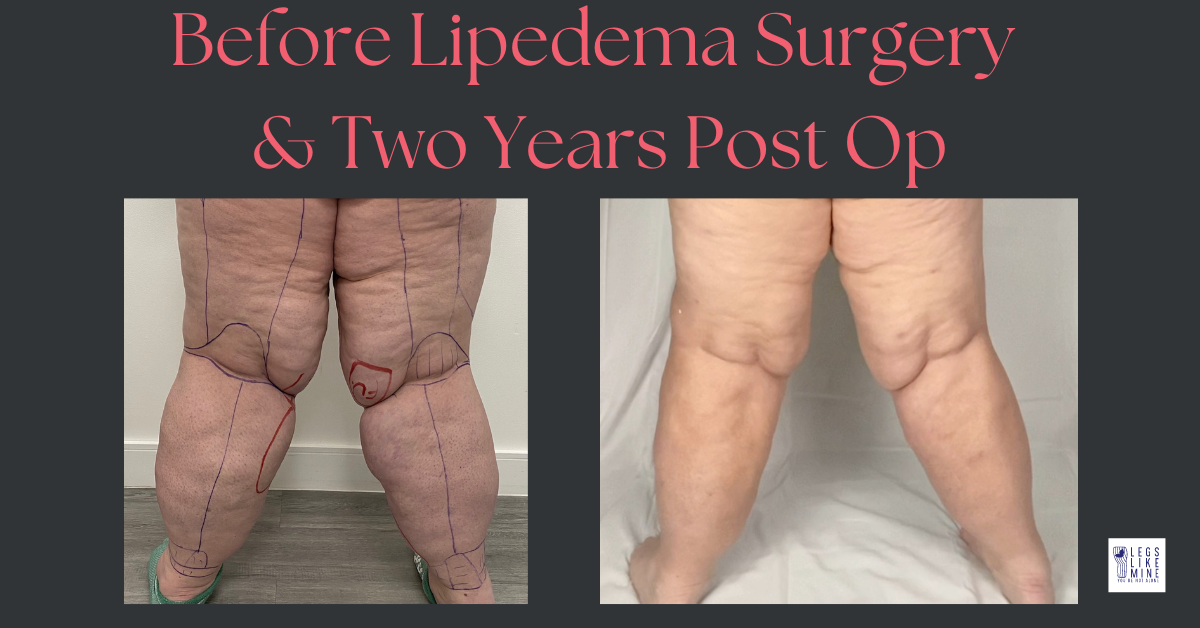Hi friends!
One of the most specific reasons I travelled to Potsdam, Germany was to hear a presentation called, The Role of GLP-1 Receptor Agonists in the Conservative Management of Lipedema by Aria Vazirnia (Beverly Hills, USA). Dr. Vazirnia is a dermatologist who did a study in conjunction with the very famous lipedema Dr. David Amron at the Roxbury institute.
I sat on the front row of this presentation and used my wicked typing skills to capture the presentation word for word, and to grab a few screen shots. I am monitoring the Lipedema World Congress site so we can see the full presentation online, hopefully soon. I’ll share it with you as soon as I find it.
For now, here are the high-level notes I captured from this presentation.
What is GLP-1: They are hormones in the body that modulate insulin, with GLP receptors being found all over the body (brain, pancreas fat, blood vessel walls, skeletal muscle, etc.) These receptors work to make you feel full, decrease appetite, and help release insulin.
(Susan’s note) What is an Agonist? A substance which initiates a physiological response when combined with a receptor.
(Susan’s note) What is a GLP-1 Agonist, then? A GLP-1 agonist is a drug that initiates a response to make you feel full, decrease appetite and release insulin.
What are GLP-1 agonist drugs? The majority of these drugs are injectable and are very effective in the treatment of type II diabetes and weight loss. Dosages are higher in these drugs for those using them for weight loss than for just diabetes.
What drugs are we talking about here? Drugs like:
Semaglutide (Wegovy, Ozempic, Rybelsus)
Liraglutide (Saxenda, Victoza)
Tirzepatide (Mounjaro)
Dulagludie (Trulicity)
Exenatide (Byetta)
Lixisendatide (Adylxin)
What are the side effects of using a GLP-1 Agonist? The side effects are mostly in the Gastrointestinal area:
Nausea and vomiting
Diarrhea or constipation
Abdominal pain
Dizziness, Tachycardia, Infections, Headaches being lesser reported.
What contraindications are there for using a GLP-1 agonist? Primarily those with inflammatory bowel disease and pancreatitis, or a personal or family history of multiple encocrine neoplasia 2A/2B, or medullary thyroid cancer. Talk to your doctor about this.
STUDY OUTCOMES
- Using these medications should NOT delay surgical treatment and conservative therapies for lipedema.
- However, the injectable GLP-1 agonist drugs had a role in helping the lipedema patients adhere to a lipedema specific diet, such as what’s found in the Lymphedema andLipedema Nutrition Guide.
- (Susan’s note here: We all know that those going for lipedema removal surgery, should go into surgery with the least amount of inflammation and non-diseased fat as possible, after doing all the conservative therapies possible for some time, so you’ll have your doctor remove lipedema fat, not healthy fat, and lipedema fat, not swelling fluids and locked up lymphatic fluid – they all fill the liposuction collection containers so why not spend the time and effort to get rid of lipedema fat and not stuff you could get rid of on your own first, right?)
- The study they conducted found that patients who used it did not note improvement in swelling tissue or sensitivity or bruising. They ultimately did have liposuction where these symptoms did improve.
- The study did show that these drugs are anti-inflammatory.
- The bigger outcome is that this study needs to be conducted on a larger scale.
- For now, my biggest take away is this: Don’t stop pursuing your conservative therapies, and your surgical journey if that’s your option for managing lipedema. If you use a GLP-1 agonist, keep doing all the other self management activities and use the drug to supplement your other good work!
I hope this helps someone today.
Susan
Now, here are the slides I grabbed in case you want to see them.
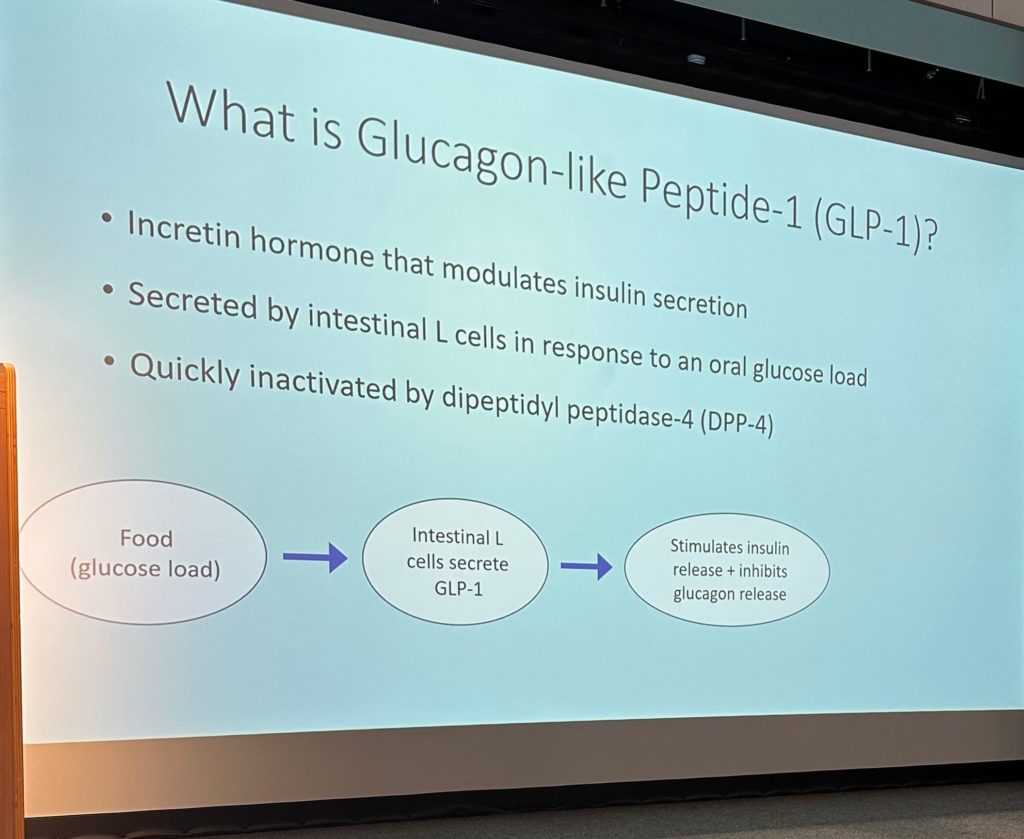
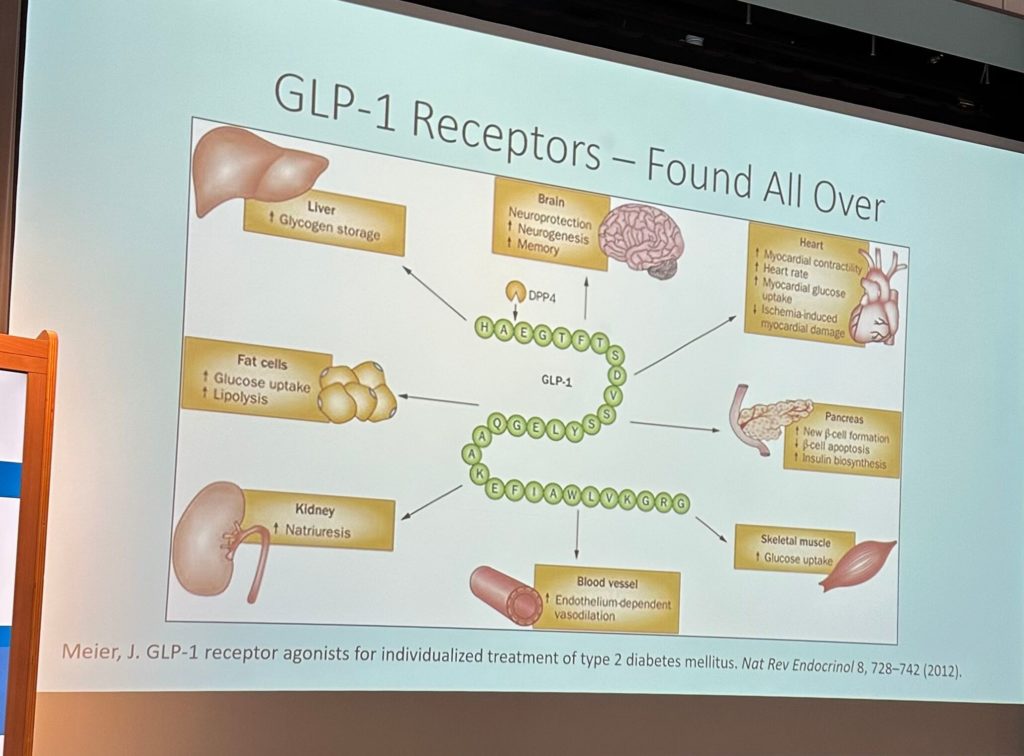
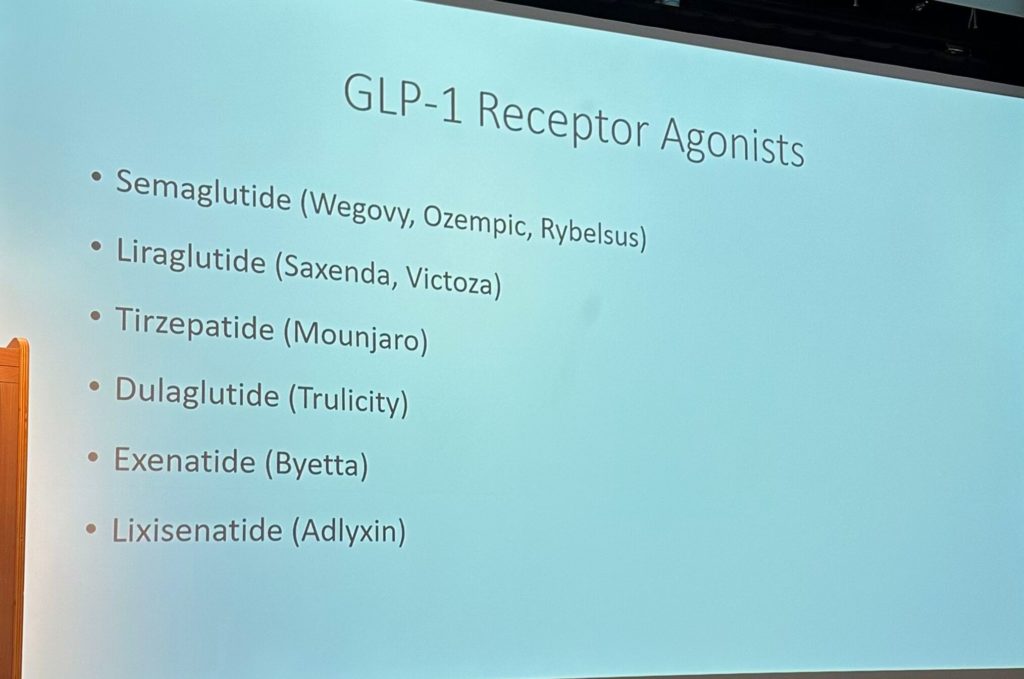
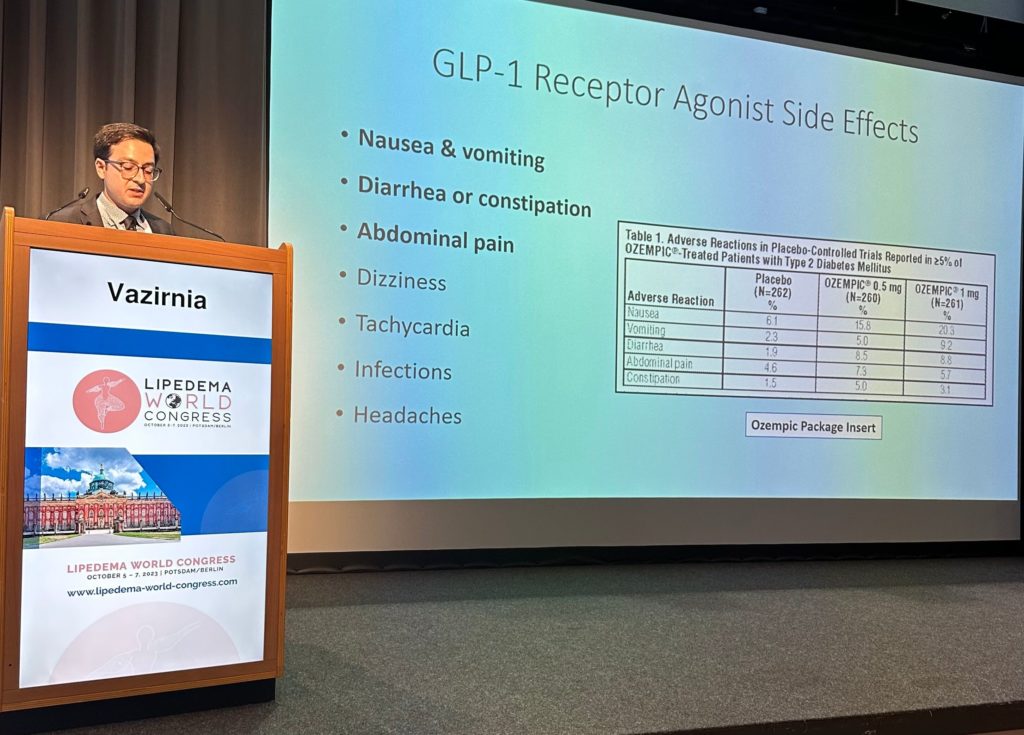
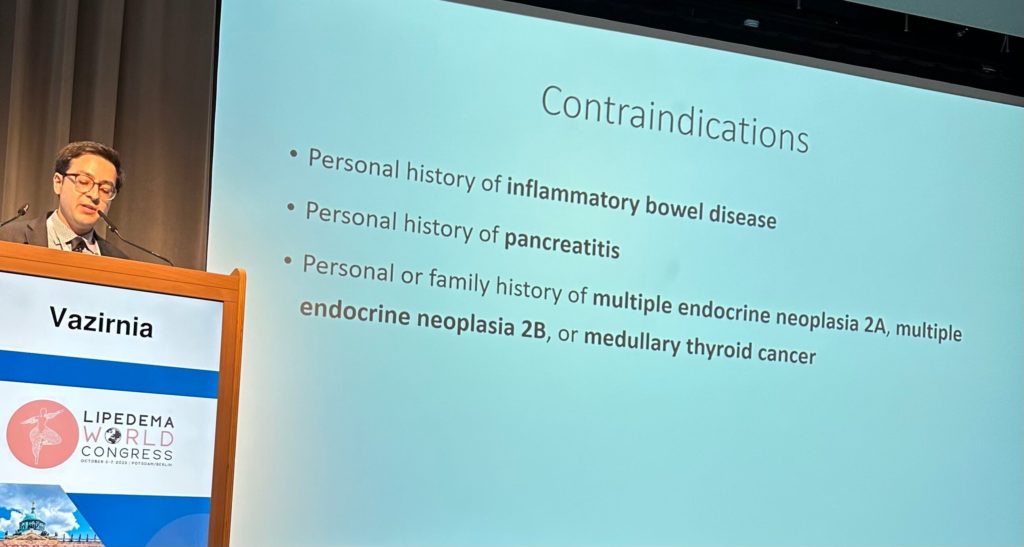

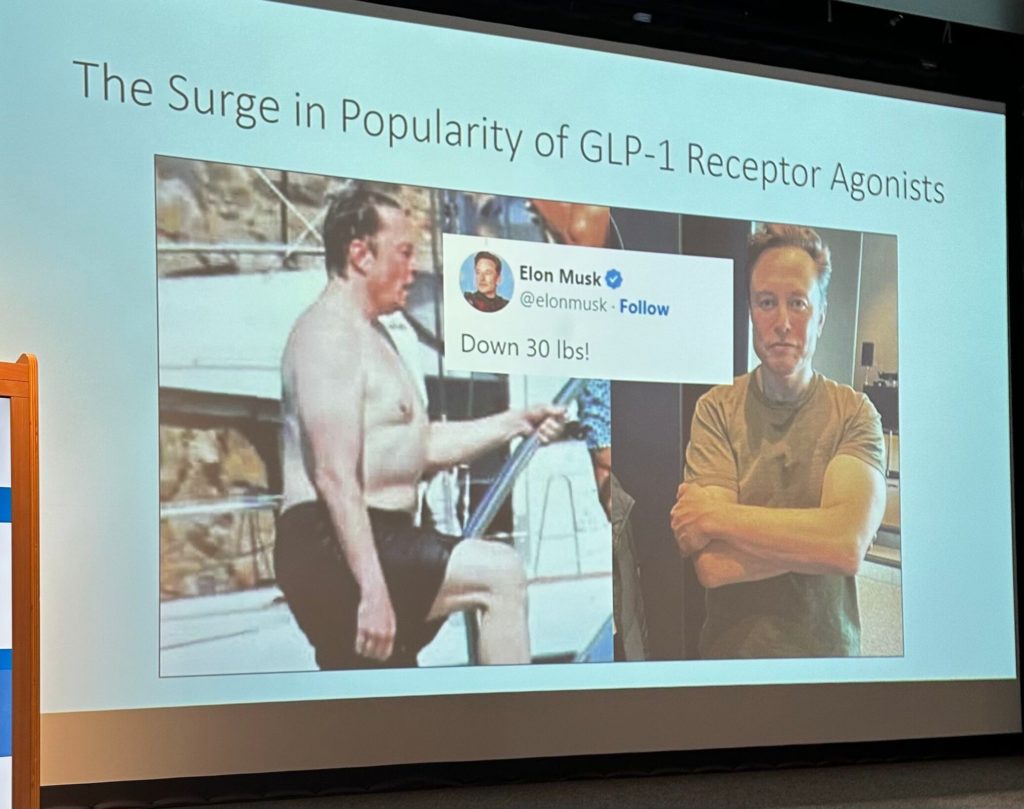
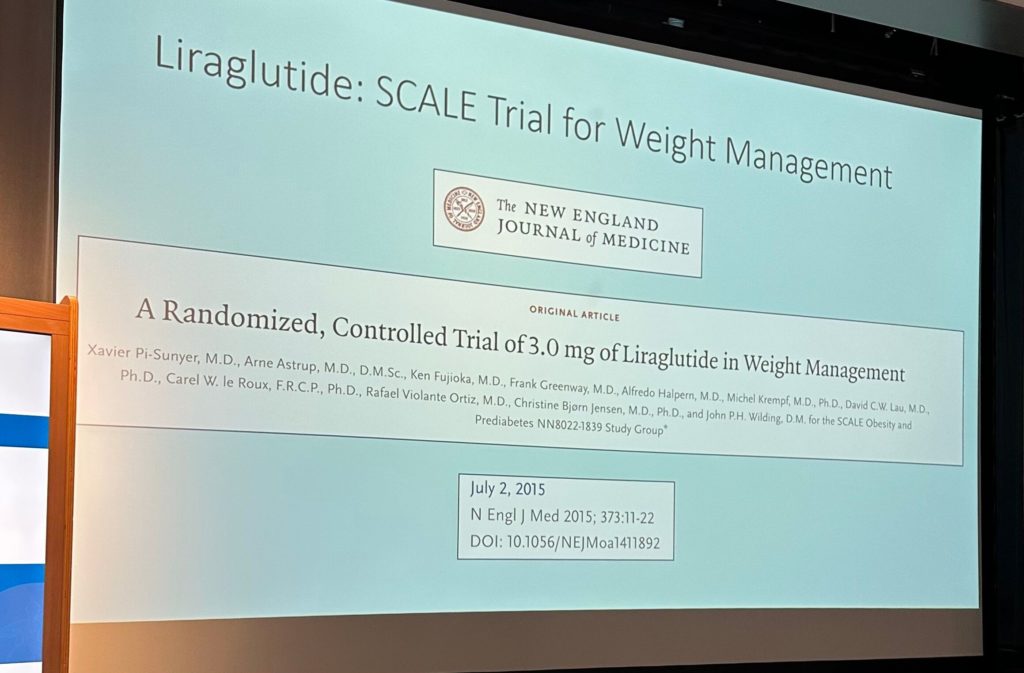
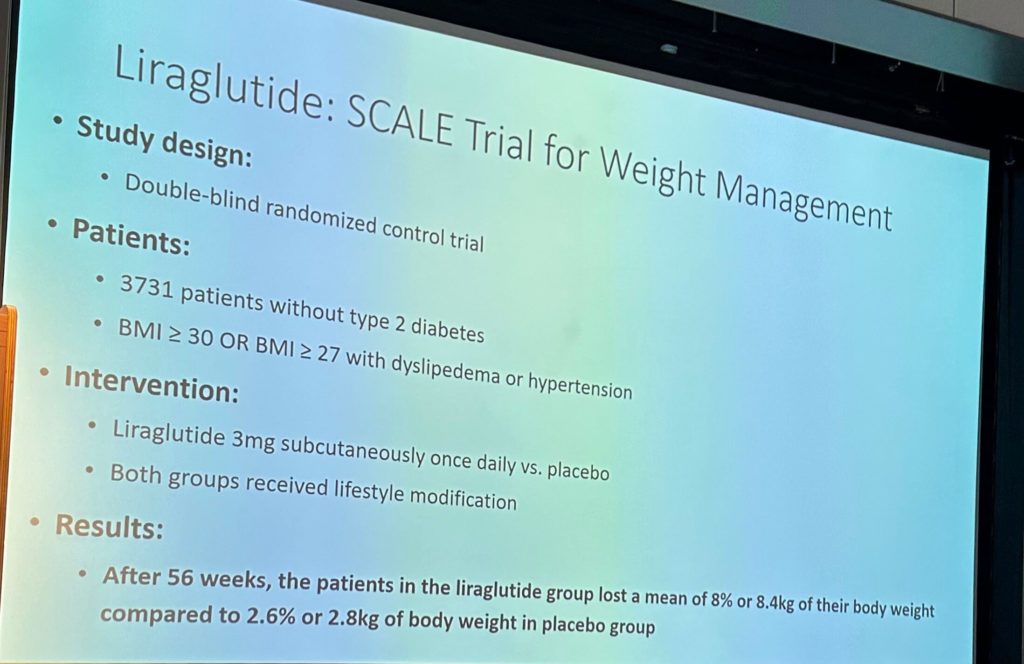
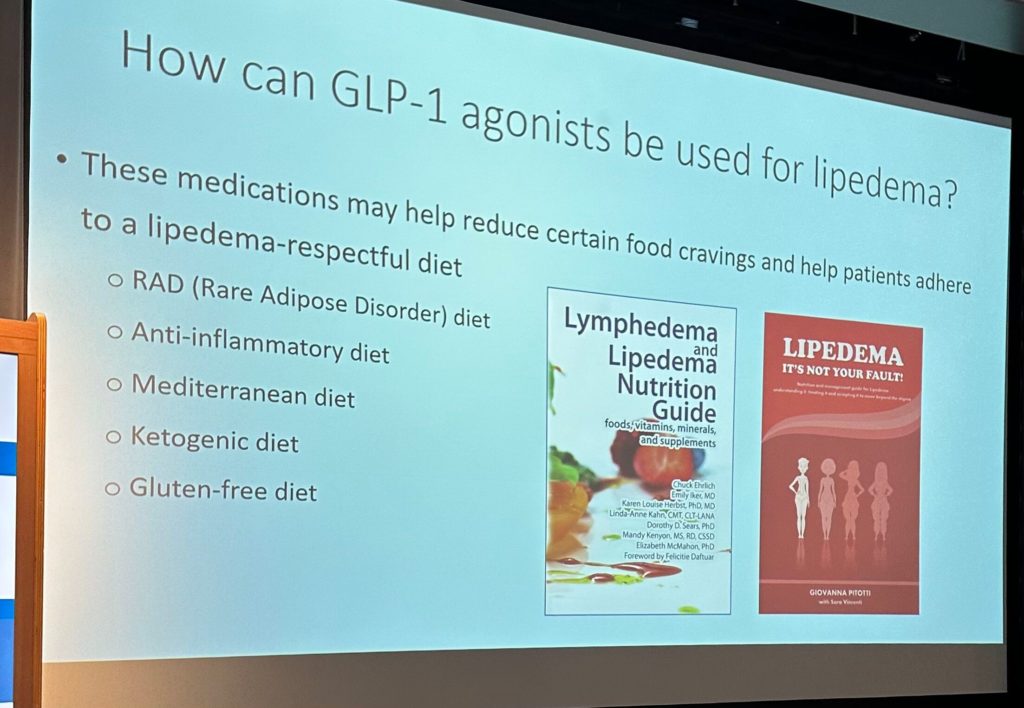
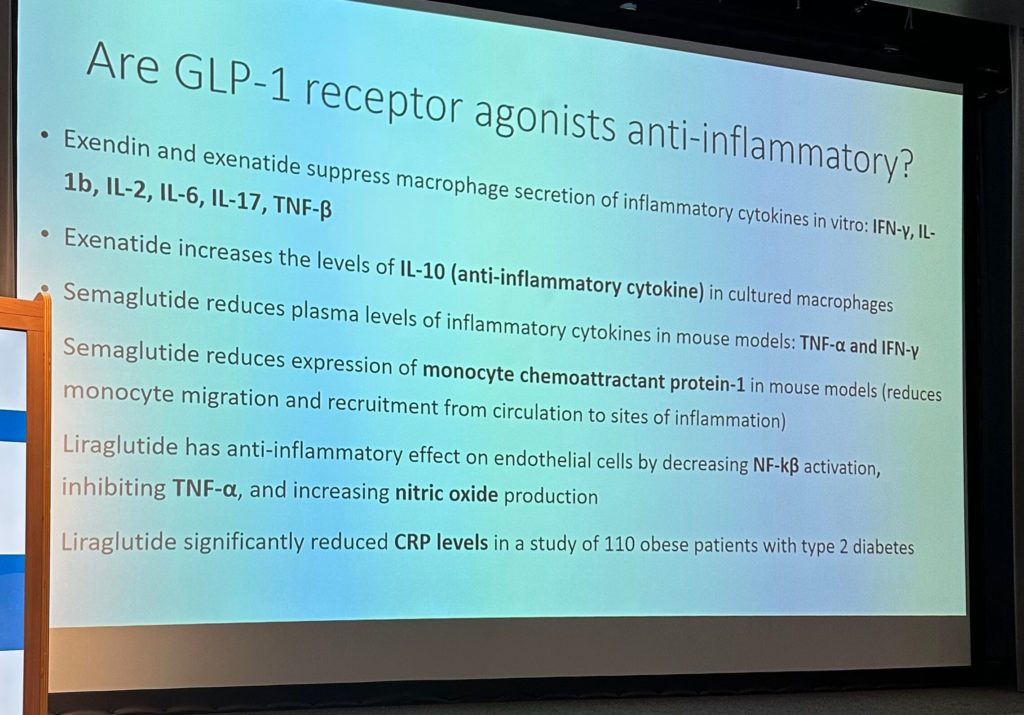
Contains paid ads. As an Amazon associate, I receive commissions on earnings.







